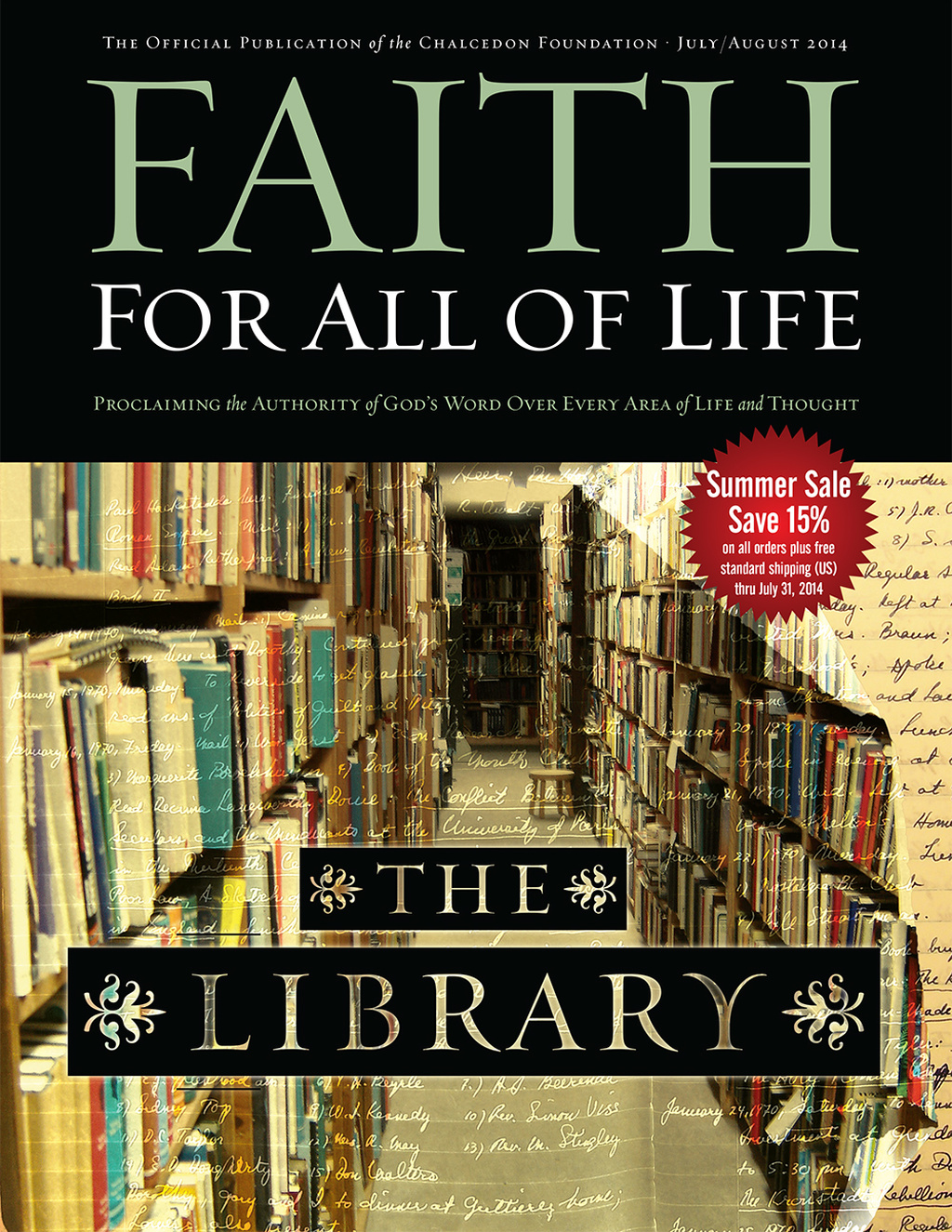
Magazine Issue
July/August 2014 Articles:

My Father’s Books

- Mark R. Rushdoony
The Pioneer Who Cut New Paths in Addiction Medicine Before Being Cut Down (3)

- Martin G. Selbrede
The Missionary and the Sieve of Time
Scholarship and the Theological Library
- Paul Michael Raymond

The Kingdom-Driven Library

- Andrea G. Schwartz
Living Letters

- R. J. Rushdoony
Resources Worth a Second Look

- Martin G. Selbrede
Fired Christian Teacher Seeks U.S. Supreme Court Hearing

- Lee Duigon